#renee reads
Text
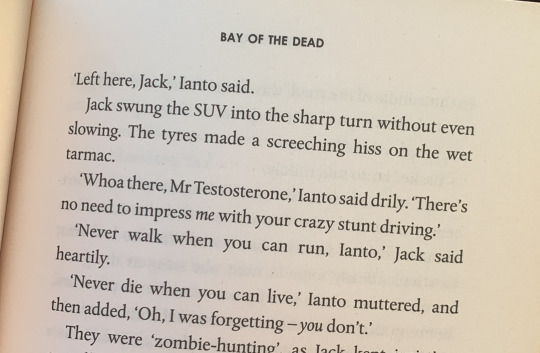
Please their banter I love it
336 notes
·
View notes
Text
Renee Reads
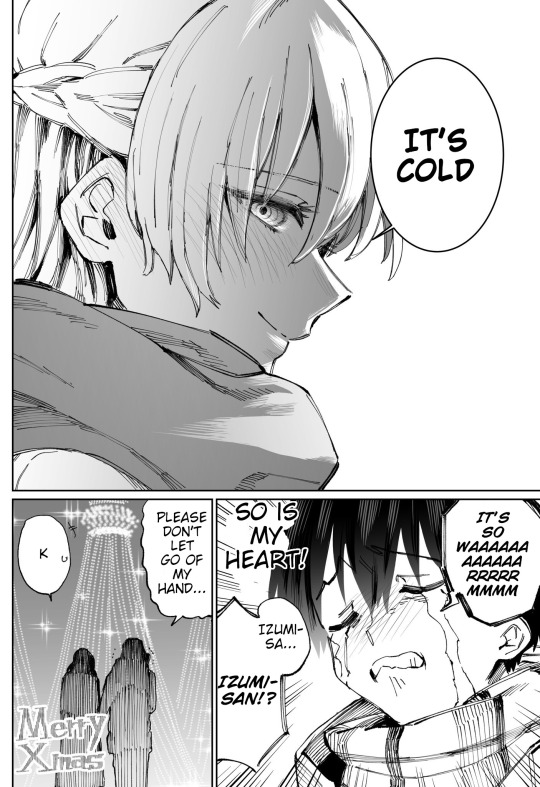
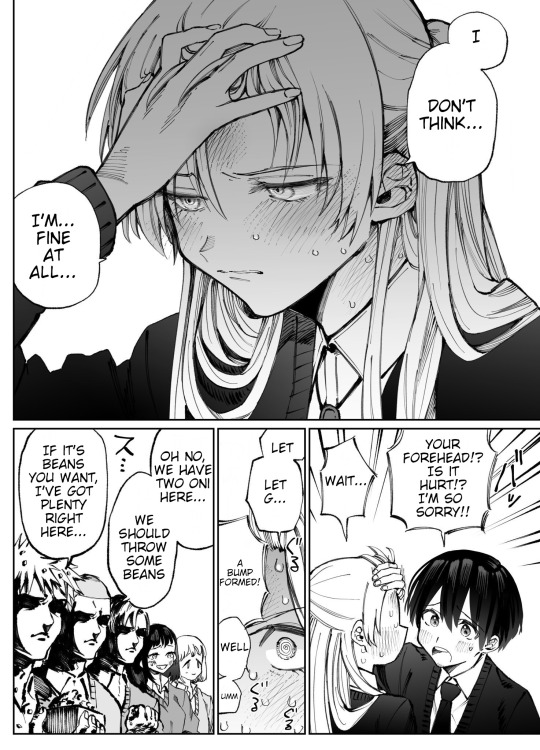

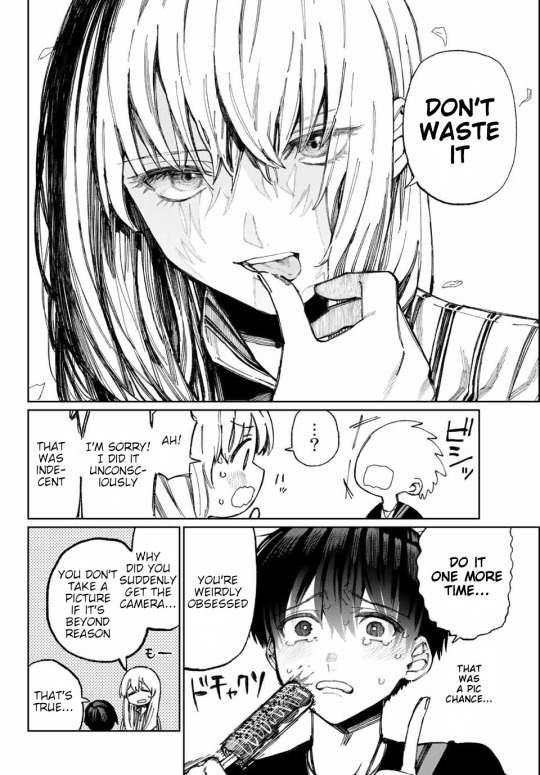


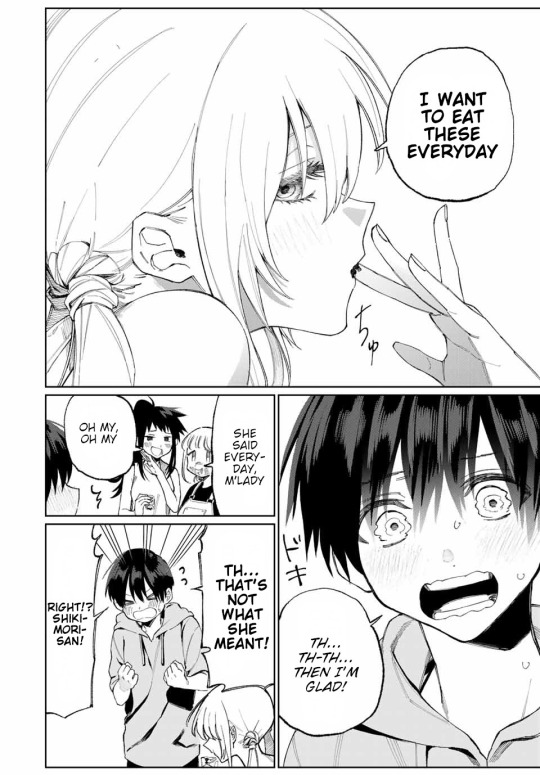
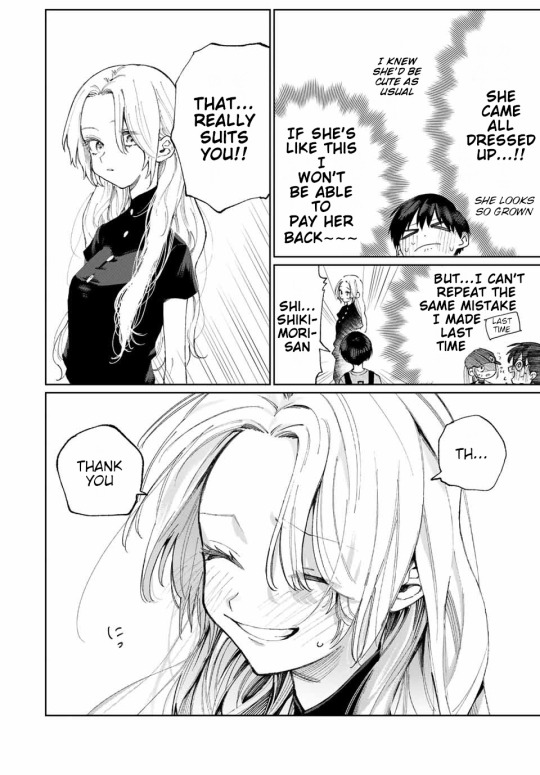

🔖 — kawaii dake ja nai shikimori-san
started reading this a few days ago and I enjoyed it!! Shikimori is so pretty aaaaaaaa i love her sm, can’t wait to read more of it! It helped me get out of my reading slump hehe <33
with louv, serene 🤍
#anime#stellaries#anime / manga#my stars and solace#serene place#anisource#kawaii dake ja nai shikimori san#manga page#renee reads#stelle's read#shikimori micchon#manga panel
6 notes
·
View notes
Text
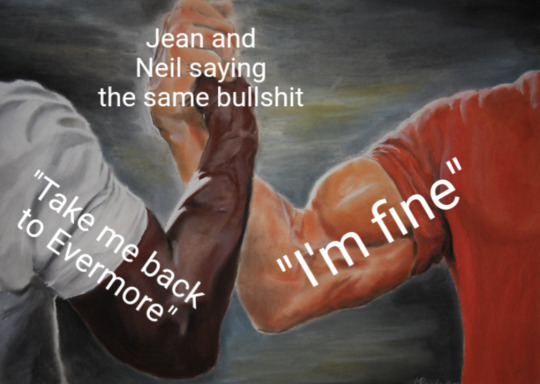
#*chucks this and goes back to reading*#the sunshine court#tsc#aftg tsc#tsc book#tsc jean#renee walker#abby winfield#jean moreau#all for the game series#neil josten#aftg neil#all for the game#aftg series#all for the memes#aftg trilogy#aftg fandom#aftg brainrot#aftg book#the foxhole court#the raven king#the kings men#riko moriyama#fandom lore#new lore#aftg#the sunshine court spoilers
201 notes
·
View notes
Text

Isabella Swan, Local Vampire Fucker & Werewolf Lover, wants you to know she's Cautious and Responsible
#LOVE THIS BITCH!!!!!!!!#this line made me literally lol#girl what the HELL are you talking about???????? you jumped off a cliff like 3 weeks ago!!!!!! get help!!!!!#the twilight renaissance#twilight renaissance#twilight#twilight saga#the twilight saga#bella swan#edward cullen#jacob black#twilight meme#twilight eclipse#fun fact! her lack of self-awareness is ultimately what denies Bella the chance to examine her relationship w/ Renee & by extension Edward!#which would be a cool detail if Twilight was lowkey aware that it's a horror saga but sadly smeyer does not acknowledge this at all...#eclipse read
1K notes
·
View notes
Text
I love angst and I love pain but I cannot read "Neil died in Baltimore" fics. they genuinely make me sick to my stomach because he just didn't deserve it. he did not deserve to die terrified and alone and nameless. He deserved a life. a family. a future.
And Andrew? God. It would have destroyed him. He would have blamed himself for releasing Neil from their deal. He did not deserve to lose the one person who could pull him back from the edge. After everything he went through? fuck that.
It's too much. AFTG might be a mess but at least we got a happy ending. I cannot stomach the alternative.
#basically why the only fics i read are canon compliant and post canon#angst with a happy ending forever#aftg#all for the game#tfc#the foxhole court#the raven king#the king's men#neil josten#andrew minyard#andreil#dan wilds#matt boyd#aaron minyard#nicky hemmick#allison reynolds#renee walker#david wymack#palmetto state foxes
2K notes
·
View notes
Text
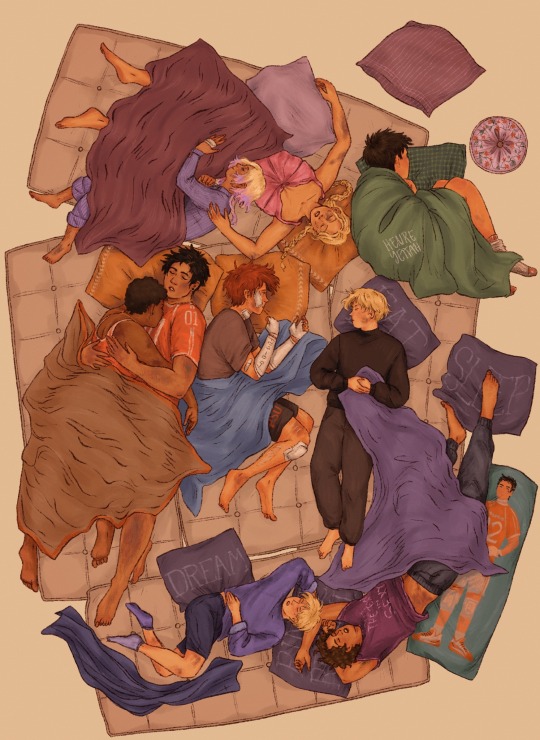
Foxhole 🦊🦊 🦊 🦊🦊 🦊🦊 🦊 🦊
#I recently got into aftg#after many years of Not reading it#anyways y’all know I’m a sucker for soft moments and soft people#so obviously this would be the first art I did of them#that scene where they’re all sleeping together on the floor#whatever Renee and Allison are called#I’ve assigned them mutually girlfriends#Kevin day x a good nights sleep#yeah Nicky has a Kevin body pillow#and yes Matt is wearing Dan’s number#he’s a wifeguy (but in a positive way. he’s not like other girls)#the cousins pillows read: eat. sleep. dream. rinse. repeat.#because I feel like it’s something Nicky would find at target or something and he’d get them#and YES I have assigned them colors. it’s what I do. there’s symbolism. it represents things. TO ME.#aftg#all for the game#the foxes#andreil#allison reynolds#renee walker#kevin day#matt boyd#dan wilds#neil josten#andrew minyard#aaron minyard#nicky hemmick#henreyettart
738 notes
·
View notes
Text

The him is Kevin. And andrew acknowledging how there’s nothing left of him. There are just scraps left. You don’t understand I will kill for andrew minyard.
#this is from EC btw from nefes#EC is so underrated i still don’t understand how can people not have read it when they claim they are an aftg fan#aftg#all for the game#tfc#the foxhole court#aftg series#aftg fandom#andrew minyard#aftg incorrect quotes#neil josten#andrew joseph minyard#aftg andrew#aftg andreil#renee walker#aftg renee#aftg reread#aftg kevin#aftg neil#kevin day#aftg shitpost#aftg meme#aftg memes#aftg textpost#aftg headcanon#incorrect aftg#aftg trilogy#incorrect tfc#incorrect aftg quotes#tfc meme
242 notes
·
View notes
Text


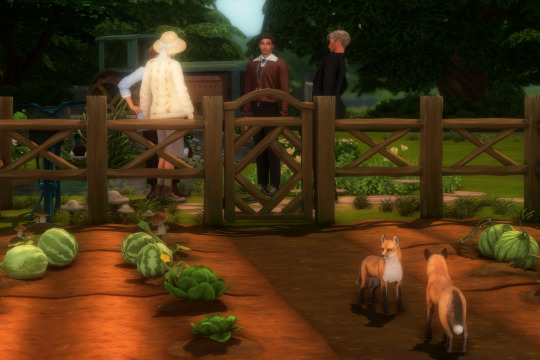
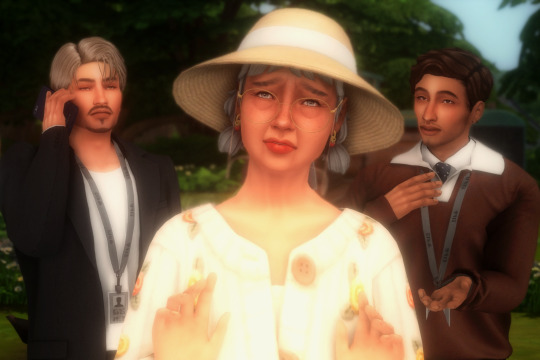

Renee was daydreaming. She imagined her and Vincent's hot selves being transported into another world and meeting vampires, not solving this lettuce case! She has met a spellcaster and a mermaid, what if vampires exist too? "Hello? Renee?" Darius waved his hand in her face. "Sorry, this whole thing is," Renee gave a small smile. "There are animal footprints here." They comforted the old lady saying things like this happen and not to feel bad about calling. And they wrapped up the missing lettuce case in less than 5 minutes!

#ts4#sims 4#ts4 gameplay#ts4 legacy#postcard legacy#postcard gen 3#renee reichmann#noah ngata#darius monet#i wrote wrapped up get it? lmaoooooo#the culprits were foxes#cottage living ones look strange so i downloaded them from gallery#i made panic's crossover fit in the story without knowing what it was#we read each others minds 😌#and somehow it fits perfectly!
76 notes
·
View notes
Text
"Minkowski's been talking about Sondheim again…": Minkowski's love of musical theatre and what it reveals about her characterisation and her relationships
TL;DR: Renée Minkowski's love of musicals, while it might seem just like a mundane character detail, is used to give depth to her character because it contrasts with expectations of her from both the listening audience and the other characters. Her willingness or unwillingness to share this interest in different circumstances reveals her relationships with other characters at various points.
Since this is a long one, if you'd rather read it as a document, you can view it here: Google Doc version.
"She actually really cares about these talent shows": Episode 8 (Box 953)
In the early episodes of Season 1, Minkowski is presented (largely through Eiffel's unreliable perspective) purely as a strict no-nonsense authority figure without much emotional depth, the kind of person who only likes things that are useful, purposeful, or mandated by Command. In contrast, musical theatre is a creative pursuit that has nothing to do with the mission of the Hephaestus and is viewed by many people as fairly frivolous or silly. The gradual exploration of Minkowski's passion for musicals is one of the many ways that the show expands and challenges our understanding of her as a character.
The first indication that we get of her interest in musicals is through her entry into the infamous talent show, something that is required as part of the mission. Minkowski really cares about 'crew morale' activities in general, even when they actually have a negative effect on morale and even before she's friends with any of her crew (for example, the Christmas and Thanksgiving dinners in the earlier stage of the mission), perhaps partly because doing things in the "right way" is important to her.
But Eiffel senses that the talent shows aren't just about rules for her: "it’s bad enough when she makes us do something just because it’s military protocol, but I think that she actually really cares about these talent shows". This might be the first indication that we get of Minkowski caring deeply about anything that isn't inherently part of her role as a Commander. Moments like this are part of the gradual process of giving us insight into her character beyond the Commander archetype that she tries to embody. And yet, she only indulges her theatrical passion because something mandatory gives her permission, or an excuse, to let another part of herself out.
Of course, to satisfy the needs of a talent show, she'd only need to provide a performance of a few minutes. But Eiffel mentions "the second act of the play" - which along with Hera's comment that "Isabel isn't the biggest role in the play" - implies that Minkowski was intending to put on the whole of Pirates of Penzance as her talent show act, rather than a few of the songs or some kind of medley. (I suppose that Eiffel could be exaggerating or Minkowski might have been planning to do extracts from different parts of the play, but I prefer the interpretation in which Minkowski gets to be more ridiculous.)
Even though no one else would be willing to be in her production of Pirates of Penzance, Minkowski casts Hera as Isabel, a role with two lines and no solo singing. I found some audition notes for this play which said "The traditional staging gives [Isabel] more prominence than the solo opportunities of the part suggest, so she must be a good actress" which does make me sad in relation to Hera's inability to have a more significant role by being physically present on stage.
It’s sweet that Hera still wants to take part though. She tells Eiffel "Pirates of Penzance is a classic of 19th century comic opera", so either she’s absorbed what Minkowski has told her about the show, or she’s done her own research and formed her own opinions. I enjoy the fact that Hera is the one Hephaestus crew member who shows potential to share Minkowski's musical theatre appreciation; I like to think that this is something they could explore together post-canon.
Anyway, I'm obsessed with the idea that Minkowski was planning to play every character except one in Pirates of Penzance, a show which is designed to have 10 principal characters and a chorus of 14 men. It seems that her contribution to the talent show was supposed to be an entire two-hour two-act musical, with costumes and props, in which she would play almost all of the parts. This is very funny to me as the perhaps predictable consequence of giving an ambitious and frustrated grown-up theatre kid a position of authority and asking them to arrange a talent show. Minkowski knows that the audience will be made up of her subordinates who are theoretically obliged by the chain of command to watch and listen, so she absolutely tries to make the most of that opportunity. There's probably also a degree to which she limits other people's involvement in her musical because - as with her other endeavors - she wants the outcome to be almost entirely within her control (something that is usually pretty much impossible in as collaborative a medium as musical theatre).
Of course, Minkowski's behaviour in most of the talent show episode is affected by her being drugged by Hilbert. This creates an exaggerated situation which is the first real opportunity for Minkowski to be something other than the strict sensible authoritarian Commander and the foil to Eiffel's jokey laid-back attitude. I don't agree with ideas that being intoxicated brings out anyone's true self (especially in the absence of consent for the intoxication), but it seems pretty clear that being under the influence of whatever was in Hilbert's concoction caused Minkowski to fully commit to a level of manic enthusiasm for her musical production that might have otherwise been obscured by her professionalism. It's a particular kind of person who belts showtunes when drunk, and Minkowski is that kind of person, even if that's not how she wants to present herself. (As a sidenote, I seem to remember that they took Emma Sherr-Ziarko's script off her to help her sound more drunk. It's an excellent performance.)
Minkowski wants interval ice cream. She wants "pirate costumes" (and she'll threaten to shoot a man to get them). She wants "swashes and buckles". She wants whatever props she can get her hands on (including a real cannon). This show is important to her, even though only three other people will witness it and two of them actively don't want to be there. It’s important to her for its own sake.
Eiffel says Minkowski wants "a second pair of eyes to tell her if the prop sabre for her Major-General costume was a bit much…" While I certainly wouldn't put it past Goddard Futuristics to have a prop sabre on the station for no apparent reason, it feels more likely that she might have made it or adapted some existing item. Which suggests that maybe she was that passionate about the props even before Hilbert drugged her.
Even so, it does feel significant that Minkowski's love of musicals is only revealed in the episode in which she is drugged, exhibiting lowered inhibitions, exaggerated behaviour, and an "impaired euphoric effect". Her love of musical theatre is initially revealed through a professional structure that provides permission, and then further emphasised by a forced intoxication that exaggerates some impulses that perhaps she already had.
"Some hobbies other than making trains run on time": Episode 17 (Bach to the Future)
After Eiffel tells to find Minkowski to find something else to do while her work duties have quietened down, they have the following exchange:
EIFFEL: You must have some hobbies other than making trains run on time. Something to do with friends? Boyfriends?
MINKOWSKI: Of course I do, but, well, there aren't really a lot of opportunities for rock climbing or trail hiking in the immediate vicinity.
Even though this quote doesn't mention musicals, I've included it here for two reasons. Firstly, it's very funny to me that, even after the talent show debacle, Eiffel acts like he's never had any evidence of Minkowski's hobbies. She tried to perform a whole play almost single-handedly and it didn't occur to him that this might indicate an interest of hers outside of work. I think this reflects the fairly two-dimensional view that Eiffel has previously had of Minkowski, which her interest in musical theatre didn't fit into.
Secondly, it feels notable that Minkowski doesn't mention musical theatre here. She wants to show that she has non-work interests, but without undermining her own authoritative image. Her interest in rock climbing and trail hiking - while it may be genuine - fits with how she wants to be seen as a Commander. These are hobbies which portray her as physically capable, with a high degree of stamina and a willingness to adapt to perhaps less hospitable surroundings. Of course, Minkowski does have these traits and they serve her well on the Hephaestus. But there's not really anything particularly surprising about her expressing these interests. The surprise in this scene comes from the reveal that she has a husband, a character detail which - like her love of musicals - isn't something we'd necessarily expect from the archetype-based view of her we are initially presented with.
Her interest in rock climbing and trail hiking never come up again, because these details don't really deepen her characterisation (or at least, they aren't really used to deepen her characterisation beyond proving that she isn't entirely all-work-and-no-play). In contrast, Minkowski's love of musicals is brought up over and over because it shows another side of her that she struggles to reveal on the Hephaestus, and that allows more interesting things to be done with her characterisation.
"You wanted to write showtunes": Episode 35 (Need to Know)
Alongside the more high stakes discoveries prompted by the leak from Kepler's files, we also learn that Minkowski applied to - and was rejected from - the Tisch Graduate Musical Theater Writing Program.
Up until this point, we've only had evidence that Minkowski enjoys performing in musicals. But here we learn that Minkowski doesn't just love watching or performing in musicals - she wanted to write them too. This suggests a creative side to her that we never see her fully express.
The course
The Tisch Graduate Musical Theatre Writing Program claims to be the only course of its kind in the world and it accepts just 30 students each year. The current application process requires applicants to: upload play scripts or recordings of songs they've written; answer a large number of extended response questions about their creative process and views on musical theatre; write a 'statement of purpose' which has to talk about why they are applying and include 3 original ideas for musicals; provide a professional resume and a digital portfolio; complete an exercise of writing in response to a prompt; and undergo an interview. The process might have changed somewhat since Minkowski would have been applying (which, if it was soon after she finished college, might have been around the early 2000s) or it might be different in Wolf 359's alternate universe, but I think we can safely assume that applying to this course was a serious undertaking that required an intense amount of commitment and work.
Applying to a course like that isn't something you do half-heartedly or on a whim. You couldn't apply to this course if you hadn't done a fair amount of musical theatre writing already. (The course requires applicants to choose to apply as bookwriters, lyricists, or composers, but I'm not going to make a guess here as to which of these Minkowski went for.) The fact that Minkowski wanted to study this course suggests that she was seriously considering trying to make a career out of musical theatre writing. In Once In A Lifetime, she tells Cutter that commanding a space station has always been her dream job, but we've got evidence here that it wasn't her only dream job. There's something kind of funny and kind of sad about the idea that writing musicals was her back-up / fall-back career path. She does not like to make life easy for herself.
The revelation
This information is revealed against Minkowski's will. It's not something she wanted people to find out, and she isn't happy about them knowing:
JACOBI: "Dear Renée, thank you for your interest in the Tisch Graduate Musical Theater Writing Program..."
MINKOWSKI: Oh, come on!
JACOBI: (pressing on) "We are sorry to say, we will not be able to offer you a spot in this year's blah blah blah." Oh this is too good. You wanted to write showtunes?
MINKOWSKI: Number one? Shut up. Number two, why are my personal records on there?! [...] How is it in any way relevant?!
JACOBI: Oh, I think it's very relevant. I mean, if you're sending someone to pilot ships in deep space, you want to make sure that they can, you know... paint with all the colors of the wind.
Jacobi CRACKS UP - and, although to a lesser degree, so does Lovelace. Minkowski looks at her: really?
LOVELACE: Sorry, Minkowski. It's... it's a little funny.
MINKOWKSI: No, it isn't!
Minkowski seems defensive and embarrassed here. She obviously doesn't trust everyone there with this revelation (Jacobi, Maxwell, Lovelace, and Hera are all present). She considers this information to be "personal" and irrelevant and not even "a little funny". She's used to reactions like Jacobi's (and to a lesser extent Lovelace's); in Ep41 Memoria, she says "most people think it's hilarious that I like musicals" (see below for more thoughts about this quote). But the fact that these mocking reactions are expected doesn't mean that they don't bother her. She wants so badly to be taken seriously and, in this scene, her interest in musical theatre seems to be incompatible with that. Jacobi reacts the way that he does because of the idea that I've already expressed, that a passion for musical theatre does not fit with the serious authoritative image that Minkowski has often presented. It's not the typical hobby of a soldier, especially not a Commander.
To me, the way Lovelace laughs suggests that she might not have previously known about Minkowski's love of musicals, or at least perhaps not the full extent of it. At any rate, it's definitely news to Jacobi. And Minkowski clearly hasn't talked about it enough for it not to feel like a big reveal for her.
The rejection
It's notable that this reveal is not just that she wanted to write for the stage, but also that she failed to get into a course that might have helped her work towards that goal. This of course compounds Minkowski's discomfort at having this information revealed. Not only did she want to write showtunes, but she encountered rejection in her attempts to do so. This detail implies that perhaps it wasn't just the appeal of her spacefaring dream that stopped her going down a theatrical career path.
I'm about to move more into headcanon territory rather than just straightforward analysis, but I personally believe that, while Minkowski auditioned for a lot of musicals (particularly as a child / young person), she was never cast as the main role. She seems embarrassed about her interest in musical theatre in a way that (at least judging by people I've encountered) people who were always the lead in their school / college productions don't tend to be.
We don't have much evidence about her actual level of singing/acting ability, given that she is inebriated during the only time we hear her sing in the podcast. However, it resonates with other aspects of her characterisation to imagine that Minkowski was generally good enough to get an ensemble part but never quite good enough to be cast as a main part. I think she might see only ever being cast as part of the ensemble, and failing to get into the Tisch Musical Theatre Writing programme, as slightly more down-to-earth examples of the same pattern as her repeated rejections from NASA. She is desperate to prove herself. She is "someone who very much wants to matter. To do something important." When she casts herself as almost every part in Pirates of Penzance, she is finally taking the opportunity to be a main character, an opportunity which I imagine had been denied to her over and over in both a literal and metaphorical sense.
"It's just from a play I saw once": Episode 41 (Memoria)
The next scene I want to talk about is from a memory of Hera's, which took place on Day 57 of the Hephaestus mission and in which Minkowski appears to be talking about the Stephen Sondheim musical Sunday in the Park with George:
MINKOWSKI: Oh, it's just from a play I saw once. It doesn't matter. (BEAT) The guy who sings it is this famous French painter. And his entire life is kinda falling apart. But he can always turn what's happening around him into these beautiful paintings.
HERA: And?
MINKOWSKI: And... That's, I don't know. Reassuring, maybe? (BEAT) I don't know why I'm going on about this. You don't care.
HERA: I think it's interesting.
MINKOWSKI: Yeah? Most people think it's hilarious that I like musicals.
HERA: I don't see what's funny about it.
MINKOWSKI: Well, thank you Hera, but you're not exactly... you know.
HERA: I'm not... what?
There's a couple of different things I want to pick out from this exchange. Firstly, the line "Most people think it's hilarious that I like musicals" makes me sad. I don't think she's talking about people on the Hephaestus there. Judging by the quote I talked about from Bach to the Future, Eiffel definitely wouldn't have registered Minkowski's love of musicals at this stage, and I doubt Hilbert cares at all about the hobbies of his fellow crew members. So Minkowski is talking about experiences that she's had on Earth, of people mocking her interest in musicals and thinking it doesn't fit with who she is. You can hear the impact of those experiences in Minkowski's reluctance to elaborate, in the way she says that something she obviously cares about doesn't matter, in her assumption that Hera doesn't care.
Secondly, this scene is a complicated one for Minkowski and Hera's relationship. On the one hand, Minkowski freely talks to Hera about something she's passionate about, and Hera listens and expresses interest. Hera validates Minkowski's interest in musical theatre without making a thing of it being weird and Minkowski thanks her. Again, it’s shown as an interest they could could potentially share.
But on the other hand, it seems like part of the reason Minkowski feels able to open up to Hera is because at this point Minkowski doesn't see opening up to Hera as fully equivalent to opening up to a fellow human. She doesn't just accept Hera not making fun of her interest; instead it seems Minkowski is about to imply that this lack of judgment indicates Hera's difference from humans (although she does have the decency not to say it outright). Minkowski's expectation of judgment from others contributes to her saying something very hurtful to Hera here. (This kind of potential consequence of negative self-attitude is explored a lot with Eiffel, so it's interesting that Minkowski can sometimes have a similar issue.)
Minkowski and Hera's conversation is interrupted when:
The DOOR OPENS.
EIFFEL: Hey, Minkowski, we've - What are you guys talking about?
MINKOWSKI: We were just discussing how I'm going to take away your hot water privileges if you don't reset the long-range scan.
Eiffel can obviously tell that he's walked in on a conversation that is about something other than work, or he wouldn't have asked. But Minkowski actively chooses not to tell him that she was talking to Hera about musicals. Perhaps she doesn't know how to open up to a human subordinate about it. Perhaps she doesn't trust him not to make fun of her. Perhaps she just doesn't have any impulse to talk about her interests with him. Either way, if Minkowski's love of musicals is something which reflects a side of her personality outside of her Commander role, this is a moment where she chooses not to take an opportunity to share that side of herself with Eiffel. This reflects the emotional distance between them three months into the mission, which forms a nice contrast with the next couple of quotes I'm going to talk about.
"Composition. Balance. Harmony.": Episode 54 (The Watchtower)
When Eiffel comes directly face to face with alien life, he discovers that music is the human invention that fascinates the Dear Listeners:
EIFFEL: You haven't figured out music?
BOB: ORDER. DESIGN. TENSION. COMPOSITION. BALANCE. HARMONY.
EIFFEL: (low, to himself) Minkowski's been talking about Sondheim again…
I only learned in the course of writing this post that in this moment the Dear Listeners are almost exactly quoting a repeated phrase used throughout Sunday in the Park with George. The titular protagonist lists various combinations of these qualities in multiple songs in reference to his art. In the closing song, the lyrics are "Order. Design. Tension. Composition. Balance. Light. [...] Harmony." It's not only Eiffel's references that the Dear Listeners are incorporating into their speech - they've picked this one up from Minkowski. This also suggests that some element of her appreciation for musicals and the way she talks about them has fed into the Dear Listeners' understanding of the human phenomenon of music. The Dear Listeners aren't just parroting - they understood the quote enough that they left out the word "light", arguably the only quality in that phrase which isn't a big part of music as well as visual art. Eiffel likes music too, but I don't think that this is how he'd talk about his favourite songs.
This is a refrain about finding order and beauty out of the chaos and uncertainty of life, which was also the aspect of Sunday in the Park with George that Minkowski focused on when talking about it in Memoria. It suggests that art/music could be something governed by rules and principles, which is potentially something that appeals both to Minkowski and to the Dear Listeners.
Eiffel's response to this reference is one of those little hints that reminds us that Eiffel and Minkowski have spent a lot of time together and that not all of that time has involved them being at each others' throats or actively in a life-or-death situation. Some of it has just been Minkowski going on about a musical she loves and Eiffel (willingly or not) paying enough attention that he recognises this phrase as a Sondheim quote that Minkowski has talked about. I suppose that this quote might have been in Eiffel's pop-culture-brain anyway, but judging from Eiffel's general tastes and the fact that I don't think Sunday in the Park with George is one of the more commonly known Sondheim musicals among non-musical fans, it seems more likely that this quote is something he only knows because Minkowski has talked about it.
Eiffel sounds exasperated at the mention, like he's heard Minkowski talk about Sondheim far too much. But I'd argue that this still says something positive about their relationship, when we contrast it with a couple of other moments I've already mentioned. Firstly, when her previous musical theatre ambitions are revealed to Jacobi, Maxwell, and Lovelace in Need to Know, Minkowski seems embarrassed and defensive. Secondly, in the memory from Memoria, she avoids telling Eiffel that she was talking about this same musical. Yet, by the time The Watchtower takes place, Eiffel is sick of hearing Minkowski talk about Sondheim. She doesn't have the same barriers up in sharing her interests with him, even though he doesn't have the same interests. I think this is a demonstration of how comfortable she feels with him. It's a hint at the kind of easy downtime that they've sometimes shared.
"One day more": Episode 61 (Brave New World)
Eiffel recognises another musical reference of Minkowski’s in the finale. As the crew are preparing for their final confrontation with Cutter and co., Minkowski quotes Les Misérables, mostly to herself - but Eiffel recognises the lyrics and joins in:
EIFFEL: Hey - chin up, soldier. We're almost through. Just one more day, and then we're done.
MINKOWSKI: Yeah, one more day. (more to herself) The time is now, the place is here - one day more.
EIFFEL: - one day more.
They both stop, dead in their tracks.
MINKOWSKI: Did you just - ?
EIFFEL: Was that what I - ?
They look at each other: No way. And BURST INTO LAUGHTER.
EIFFEL: Man... this is really it, huh? The end of everything.
It feels really important that Minkowski and Eiffel share this moment of togetherness before she tries to send him back to Earth and before the rest of the action goes down. I think there’s some nice symbolism about them finding a way to communicate that they both understand. Making references is Eiffel's thing, and musicals are Minkowski's thing, so this is a synthesis of their two approaches. Again, there's a contrast with Minkowski's previous unwillingness to share her musical theatre passions with Eiffel (at least without the mitigating circumstances of a mandatory talent show and some kind of intoxicating substance).
I talked about the significance of the fact that they reference this particular musical in this post from ages ago. I don't think it's too much of a spoiler for Les Misérables to say that the revolution that the song One Day More is building up to does not end well for the revolutionaries. When Eiffel says "Just one more day, and then we're done", it encompasses both the possibility that the crew will escape to travel back to Earth and the possibility that they will all die. Minkowski's reference to a famously tragic musical suggests that it's the latter possibility that's at the forefront of her mind (right before she tries to send Eiffel away from the danger). But Les Misérables is also a story about people standing together in solidarity against powerful oppressive forces, which gives particular resonance to the way that this reference brings Eiffel and Minkowski together in a moment of being completely on the same wavelength as they prepare to fight Cutter and Pryce's plan.
When they laugh here, it's not about the 'hilariousness' of Minkowski's interest in musicals, it's about their unexpected unison - Eiffel's recognition of Minkowski's reference and Minkowski's surprise at the fact he joined in. It's a laugh of togetherness, of shared understanding, of friendship. It's a moment of lightness in dark times. And that moment is provided by Minkowski's pop culture interests, not Eiffel's. In spite of all they've been through, she's not lost that part of herself, and in fact, she's more open about it, at least to Eiffel.
I'll finish by highlighting what Eiffel says when he's trying to get into character to impersonate Minkowski so he can turn the Sol around:
EIFFEL: Umm... yes, this is Lieutenant Commander Renée Minkowski. I'm... uh... well I sure love schedules, and, uh, musicals. And that man, who I married…
I just think this is a nice example of Eiffel not defining Minkowski solely by her professional Commander role. Sure, she likes schedules (probably in a personal as well a professional capacity to be fair), but she also loves musicals, and her husband. It is a fairly reductive overview of her as a person, but it feels reductive in a fond way, like these things are part of Minkowski's brand to Eiffel in a way that he might affectionately tease her about. (Credit to @commsroom for this thought.) His view of Minkowski has come a long way from "our resident Statsi agent" or even just "you must have some hobbies other than making trains run on time." He doesn't see any contradiction or inherent humour in Lieutenant Commander Renée Minkowski's appreciation of musicals.
Conclusion
Minkowski's love of musical theatre is used to deepen her characterisation and is one of the ways in which we gradually begin to see her complexity beyond the strict Commander archetype. The degree to which she is prepared to share this interest at various points is used to illustrate the nature of her relationships with other characters: a general unwillingness to show a less serious side of herself; a complicated potential shared interest with Hera; and the growing understanding between her and Eiffel.
If you read this whole thing, well done / thank you 😄 It wasn't meant to be this long - it just happened… Feel free to share your thoughts!
#It's Minkowski Essay Time again!#This is over 4700 words and still doesn't cover it all...#I hadn't quite realised there was so much to say!#Wolf 359#w359#If anyone is more familiar with 'Sunday in the Park with George' and has thoughts on why it might particularly appeal to Minkowski#I'd be interested to hear#I listened to the soundtrack and read the Wikipedia plot summary#but I don't think I really got it#My other significant bit of research was that#in order to see what applying to the Tisch Graduate Musical Theatre Writing Program involves#I had to create an account as if I was actually applying#which might be the oddest thing I've done for character analysis#If it interests anyone I could do a post with more detail about that application process#cos it looks insanely intense#Renée Minkowski#Renee Minkowski#the empty man posteth#I hope no one takes things I have said here as critical of musical theatre people btw#I'm just talking about general perceptions#In general I do enjoy musicals myself from an audience perspective
179 notes
·
View notes
Text
I bet that if Renee wasn't adopted by a catholic woman she'd be 100% a believer in tarot and when she met Neil the cards knew he was a lying time bomb for certain death but she wouldn't have told him that directly because they also said that he could find his own way.
#Just a silly hc to make up for my last post#she would have a very nice and used deck#andrew probably would tell her he doesn't believe but also ask her a lot of questions#9/10 questions ended up being about neil#she would want a read of her and jean's relationship too#aftg#all for the game#aftg brainrot#nora sakavic#neil josten#renee walker#andrew and renee's friendship >>>
47 notes
·
View notes
Text
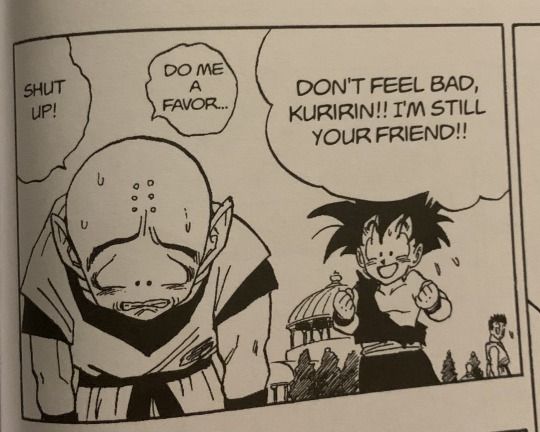
That’s a very Goku thing for you to say Gohan
140 notes
·
View notes
Text

Have you ever wondered what was up with that faceless guy from Justice League Unlimited? Or how that recurring cop from Batman the Animated Series ended up as a vigilante? Or just really wanted to read about some pulp detectives having existential crises while trying to be superheroes?
Well, this is the excessively detailed spreadsheet for you!
Featuring every single appearance* of both Vic Sage and Renee Montoya, as well as the other characters who've temporarily taken up the mantle, categorized by how much they show up and how important it is to their arcs. Also includes content warnings and my notes, which are mostly just rambling.
*currently just comics. TV/movies/video games will be coming shortly. I'm avoiding watching Gotham.
Please let me know if there's anything I could fix or improve!
Thanks to @megamind2010 for the template.
#the question#vic sage#renee montoya#dc comics#dc reading list#clayposts#nearly nine hundred comics in this. aaaaaaaah
82 notes
·
View notes
Text

Justice for my girls 😭 💔
Ref :'( ->
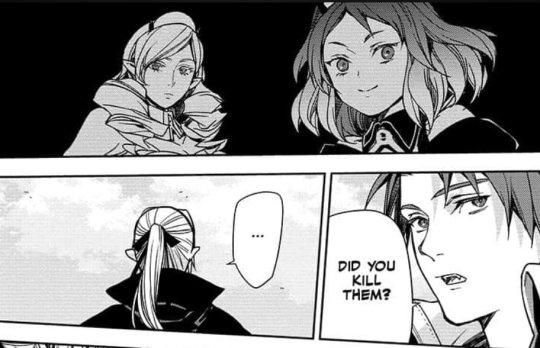
#fanart#owari no seraph#seraph of the end#horn skuld#chess belle#digital art#my art#saw the leaks thos morn#went through the 5 stages of grief#went to ikea for a new chair#(and some ikea meatballs ofc)#came back home and read the translated chp#pulled myself together and drew this tribute#bone apple teeth#now to have nightmares abt ferid becoming a snake and unhinging his jaw#thats what he's been doing off screen to all those characters we wonder abt#Lacus and Rene? eaten#Seishiro? devoured#Narumi? well you see ferid was feeling a little peckish after chp 77
48 notes
·
View notes
Text
can not believe that Kevin canonically fanboys over the trojans and we all just went yeah okay and moved on
like can we go back a minute because i do think this has some interesting fan fic potential
#i mean if there are fics out there that go into this can someone please let me know what they are so i can read them immediately#aftg#all for the game#kevin day#andrew minyard#neil josten#aaron minyard#nicky hemmick#allison reynolds#renee walker#andreil#ao3 fic#recs please#give me a kevin who gets sent a trojans shirt by jean as a joke but he wears it anyways
735 notes
·
View notes
Text
you could convince me to like any ship if there’s good fanfiction for it
#this is why I’m not concerned about jerejean being canon or not#like I’ve just read a banging Renee/Jean fanfic to prepare myself and now I love them#aftg#all for the game#andrew minyard#neil josten#the foxhole court#andreil#tfc#all for the gay#aftg shitpost#shitpost#tsc#the sunshine court
71 notes
·
View notes
Text
Just read the ‘Last Chance’ script again.
It literally is a piece of femslash fanfiction.
It’s both a musical and a doppleganger episode and so you can only imagine the gay shenanigans that would happen between the lookalikes that are actual lovers.
From Xena Wiki. Source: https://warriorprincess.fandom.com/wiki/Last_Chance
“Scheduled for February 2001, but never shot. This was the infamous Sappho episode. Written by Robert Tapert and Melissa Good, it was to be directed by Mark Beesley. K.D. Lang apparently agreed to guest star.
Synopsis
Sometime during her life as a mortal, Aphrodite "stole" Sappho from the Muses because she wrote, like, such kickin' love poetry. The Muses got back at Aphrodite for the "kidnapping" by casting a spell on Aphrodite's son. The spell was one of celibacy, which, of course, is a major bummer for Aphrodite. Aphrodite decides to get her son "un-celibate" by getting him to go to Lesbos to groove on some Sappho love poetry.
The problem is that Sappho (Renee) has "lost the muse". She and her partner (in *every* sense) Morai (Lucy) have been fighting a great deal. Having creative differences, in other words. Sappho hasn't been giving Morai enough credit in the partnership, and in the end, Morai (a meek woman) leaves, during the time that they're getting ready to put on a play called "Love Bites".
Aphrodite, seeing her plans for her son going seriously awry, goes to two people she hopes will help her. Xena and Gabrielle. She breaks in on a jam session with Xena and Gabrielle. Gabrielle is trying to write a song, and Xena keeps on putting her two cents in. Gabrielle finally asks Xena to just shut up and sing it already. And we hear the first lines of Last Dance.
Aphrodite "pops in", interrupting them. She then asks them if they'd fill in briefly for Sappho and Morai while she goes after the two to try and get them back together. After a few moments, Xena and Gabrielle agree to Aphrodite's scheme, and travel to Lesbos.
They get there, and of course, everyone mistakes Gabrielle for Sappho, and ignore Xena (masquerading as the meek and mild Morai). The play is down to the last moments, almost ready to be put on, but the ending isn't even done. Xena and Gabrielle need to stall until Aphrodite can get the real Sappho and Morai back so that they can finish the play that she hopes will break her son's celibate spell.
Mistaken identity hijinx ensue, with Gabrielle loving the accolades and Xena getting more and more pissed off because people are treating her like a somewhat brain damaged dog. Xena and Gabrielle get into a small (minor) tiff because Xena is upset, but eventually things get back to "normal".
Meanwhile Sappho and Morai have taken a canoe/camping trip into nature in order to work out the kinks and get the muse back so they can finish the play. Unfortunately, that flops, as does the canoe, so Sappho and Morai wind up back at Sappho's home, where they run into, literally, Xena and Gabrielle. However, it's kinda funny the way it happens.
See, Xena, walks into Sappho's boudoir thinking Sappho is Gabrielle. Sappho is instantly entranced by Xena's bearing, and *especially* her leather. Xena is a bit taken aback by Gabrielle's forwardness, especially since they've just had another small arguement and Xena left the party.
Meanwhile, the REAL Gabrielle is in another room when Morai comes in (thinking it's Sappho) and wanting to make up with her partner. She takes off Gabrielle's boots and offers to read her some poetry before they go to bed. Poetry? Gabrielle wants to know where Xena (who she thinks Morai is) got the henbane and how much did she take?
Both sets of doubles eventually find out that they're not who the other thinks they are, and all four collide in the hallway outside the bedroom. After the surprised introductions are over, Sappho offers to have Xena (who she REALLY likes) and Gabrielle to share the bed with she and Morai. Gabrielle declines and Xena and Gabrielle go into Sappho's workroom, where they settle down for some "pillow talk". (In the script, and yes, they're sharing a bed).
They each talk about how they knew the double wasn't who they thought they were after a short time and then go to sleep. Xena wants to leave, figuring that with Sappho and Morai back, their mission is done, but Aphrodite convinces them to stay on a bit longer. Which is a good thing, because Sappho and Morai argue again and Morai runs away.
The play is ready to go on with Senhel and Avian in attendance, but without Morai (who is playing several parts), what can be done? In steps Xena to fill Morai's spot while Gabrielle runs off to find the runaway poet and to convince her to return to Sappho's side.
Then the Donkey Show part of this ensues, with all the disco tunes you heard about. It's as confusing as the real Donkey Show is, and I really can't do it justice, but basically it's about three couples (each played by Lucy and Renee) some who love each other, some who want one but the other doesn't want them back.
Aphrodite thinks this play, sampling the "many flavors of looooove" is just the ticket to get Senhel to see the error of his ways. They start out, but at first, Sappho is upset because while she *really* likes Xena, the reverse isn't true. Xena's not interested, and Sappho thinks she's falling down on the convincing job (to the audience).
They go along in the play and Aphrodite pops in again, and sees that her son is completely unmoved. Morai (who really DOES love Sappho) still isn't back yet, so Aphrodite pleads with Xena to "please, just fake it" with Sappho so that Senhel will get the picture. Faced with the alternative (failure) Xena decides to "fake it" and starts becoming more steamy with Sappho during the songs such as "Love to Love You Baby", "Knock on Wood", "Don't Leave Me This Way" and the like.
Gabrielle, meanwhile, has convinced Morai to give Sappho one more try, and brings her back to the playhouse just in time to see Xena pin Sappho to a set piece on stage and kiss the living daylights out of her. Morai is upset. Gabrielle is kinda upset. Senhel is falling asleep (because, obviously, what's going on up on stage is not love, just lust).
Morai begins to sing "I Will Survive" to Sappho and then leaves. Gabrielle leaves with her. The audience begins to leave.
"WAIT!" shouts Xena, and tosses her chakram to close the doors to keep the audience from leaving. Then she begins to sing, to Gabrielle, the song they wrote together. Which, of course, is Last Dance. As she hears it, Gabrielle stops. Then turns. Then, as Xena continues to sing, she begins to approach Xena until they wind up holding hands and looking into each other's eyes.
Then, as the song fades, they hug. Then they look over at Senhel, who is STILL unmoved. So then, and this is from the script:
“Xena and Gabrielle kiss with deep and sincere passion.” Everyone stares, entranced.
When they finally come up for air, Senhel is on the floor, the spell broken because he has finally seen true love. As the song begins again, Avain kisses Senhel, Morai kisses Sappho, and everyone is happy again.”
#xena warrior princess#last chance#script#musical#doppleganger#xena and gabrielle#xena#morai#lucy lawless#gabrielle#sappho#renee o'connor#this script is so gay im not even sure it would be allowed to be seen on tv today never mind in the 90’s/early 2000’s#the collar and leash dom/sub thing is insane#rob tapert was insane#y’all don’t even know what gay is until you’ve read this script#for the love of aphrodite#this is literally femslash fanfiction#I love the xena creators/cast/crew so much
78 notes
·
View notes